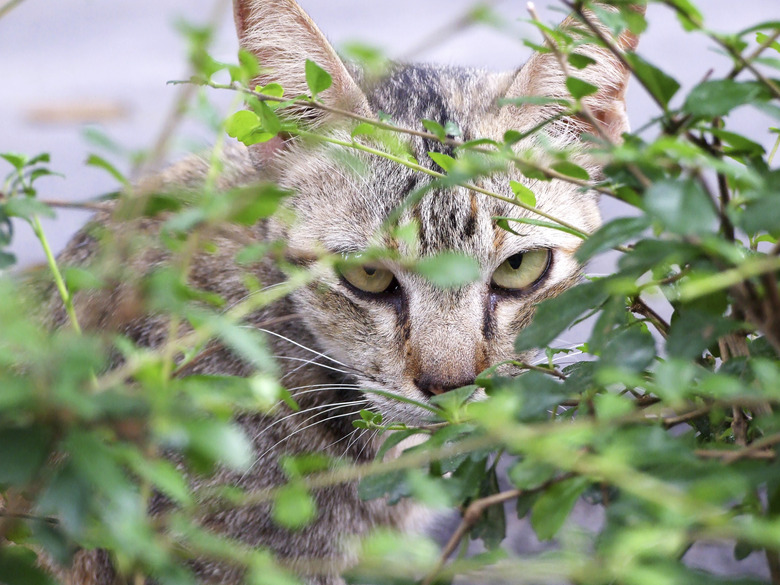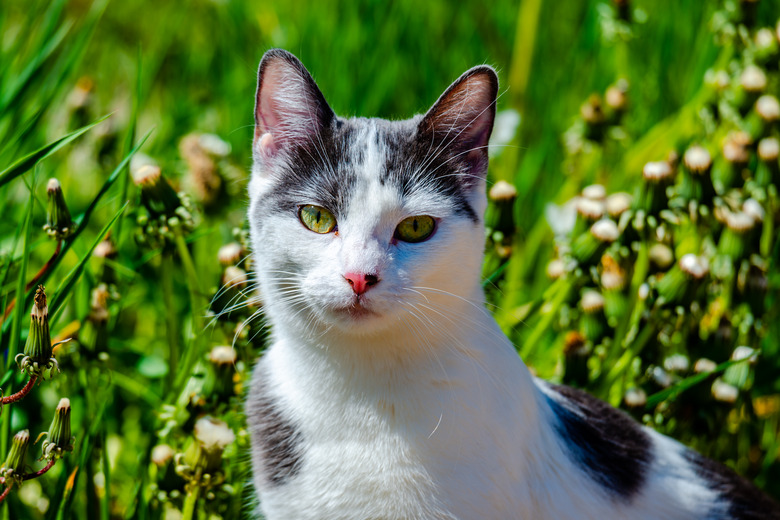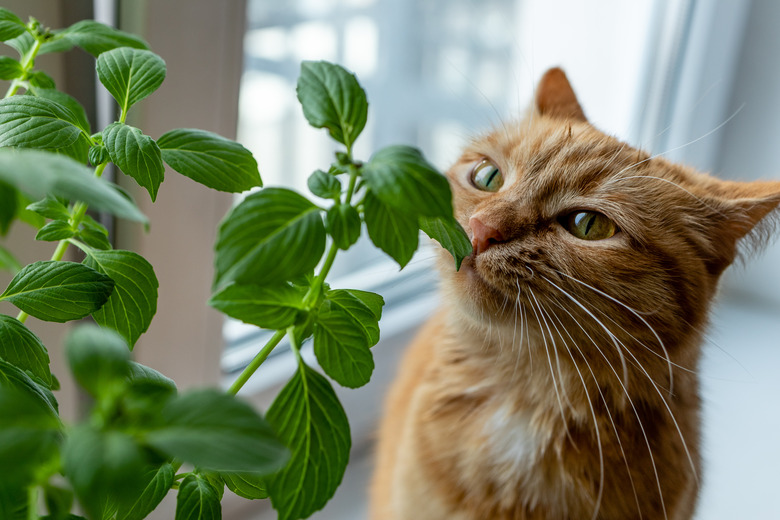Are Carnations Poisonous To Cats?
Carnations and cats or, in fact, any type of dianthus and cats do not make a good pair. Carnations (Dianthus caryophyllus) are only mildly toxic, but they can cause stomach upset. Diarrhea, drooling, loss of appetite, and vomiting are indications that your cat may have chewed on carnations in the garden or in a bouquet. Consult your veterinarian if your cat has eaten carnations, pinks, sweet Williams, or other Dianthus species. Carnations are toxic to canine pets as well, causing similar digestive symptoms.
Mildly toxic dianthus species
Mildly toxic dianthus species
It's important to understand that toxic means harmful, but not necessarily deadly. Carnations, pinks, sweet Williams, and other dianthus species contain triterpenoid saponins, which are stomach irritants. They usually make a cat sick only in the stomach. Because cats often eat grass and plants, including carnations and their relatives, and often vomit afterward, it is hard to determine if one is sick because she ate a few carnation petals or because she munched on a grassy snack outside. In general, if a cat vomits once or twice, that usually clears her system of the irritant. If your cat has prolonged sessions of vomiting or diarrhea, take her to the veterinarian; she may have eaten something more poisonous than a carnation.
Beware the not-so-pink pinks
Beware the not-so-pink pinks
Pinks, which are another member of the Dianthus family, get their name not because of their color, but because their ruffle-edged petals look as if they were cut with pinking shears. In fact, some pinks are pink in color, but others are shades of purple or white. So don't look for pink flowers as the culprit Dianthus your cat has eaten.
Plants extremely toxic to cats
Plants extremely toxic to cats
While most plants, such as grass or carnations, cause simple vomiting or diarrhea to cats (and dogs) who ingest them, some plants are very poisonous. Components of these plants can cause extreme reactions and possibly death:
- Azaleas (Rhododendron spp.): All parts.
- Castor beans (Ricinus communis): All parts, especially the seeds, or beans.
- Cylamen (Cylamen spp.): All parts, especially the tubers, or roots.
- Lilies (Lilium spp.): All parts.
- Oleander (Nerium oleander): All parts.
- Sago palm (Cycas revoluta): All parts, especially the seeds, or nuts.
- Yew (Taxus spp.): All parts.
If your cat eats any part of these plants, you don't have time to wait and see how she is doing; a trip to the veterinarian is essential to your cat's survival. For example, castor beans contain ricin, and even a small amount of it is enough to kill a child or small animal like a cat. If you know your cat loves to munch on plants, removing poisonous varieties from his access will ease your mind.
Take action based on symptoms
Take action based on symptoms
Of course, you may not know what plants your cat ingested, so let her symptoms be your guide. If she vomits and then resumes her normal behavior, keep an eye on her but you probably don't need to rush to the vet. If, however, she continues to vomit or has bloody diarrhea, this is cause for concern and at minimum a call to your vet. Let the vet know that it's clear she ate some kind of plant but you aren't sure what. If the cat seems to be in pain, becomes lethargic, shows signs of dehydration such as a decrease in urine, or exhibits other signs of being ill, go to the vet or vet emergency clinic.
Always check with your veterinarian before changing your pet's diet, medication, or physical activity routines. This information is not a substitute for a vet's opinion.


